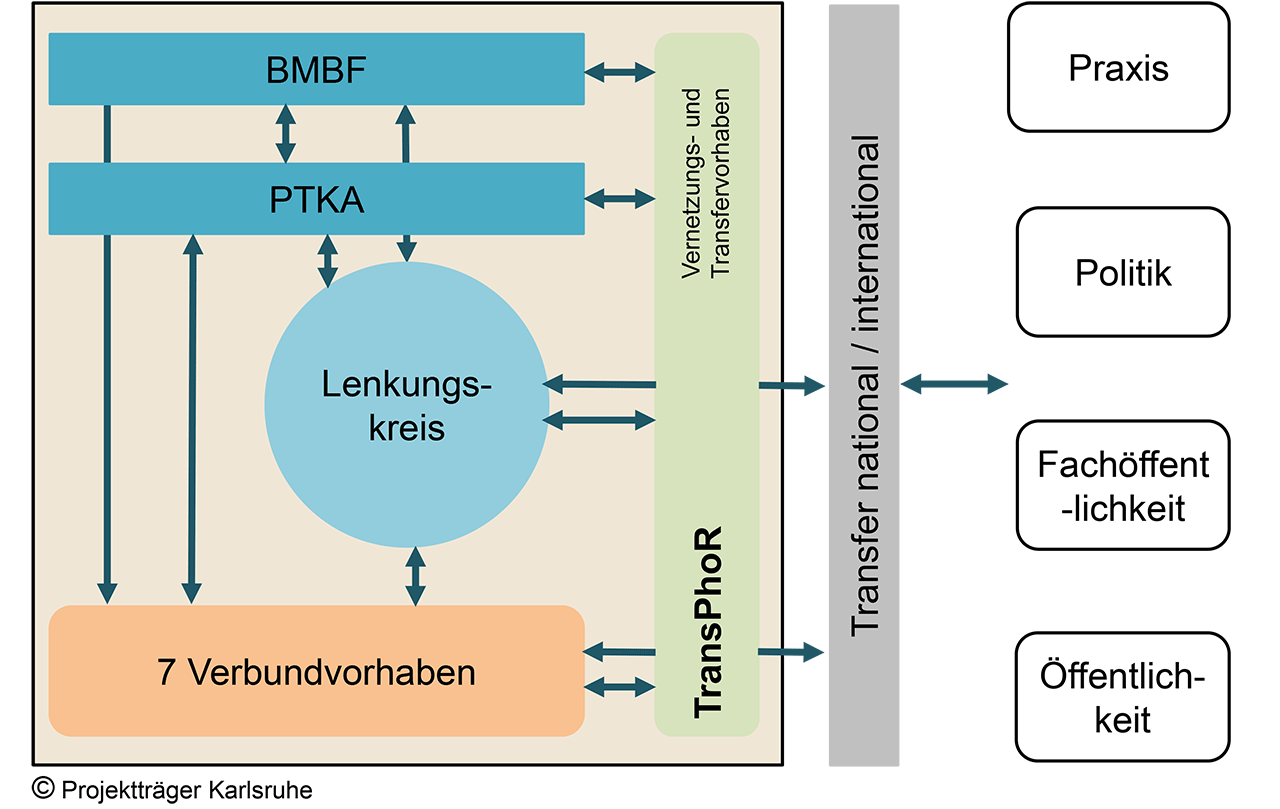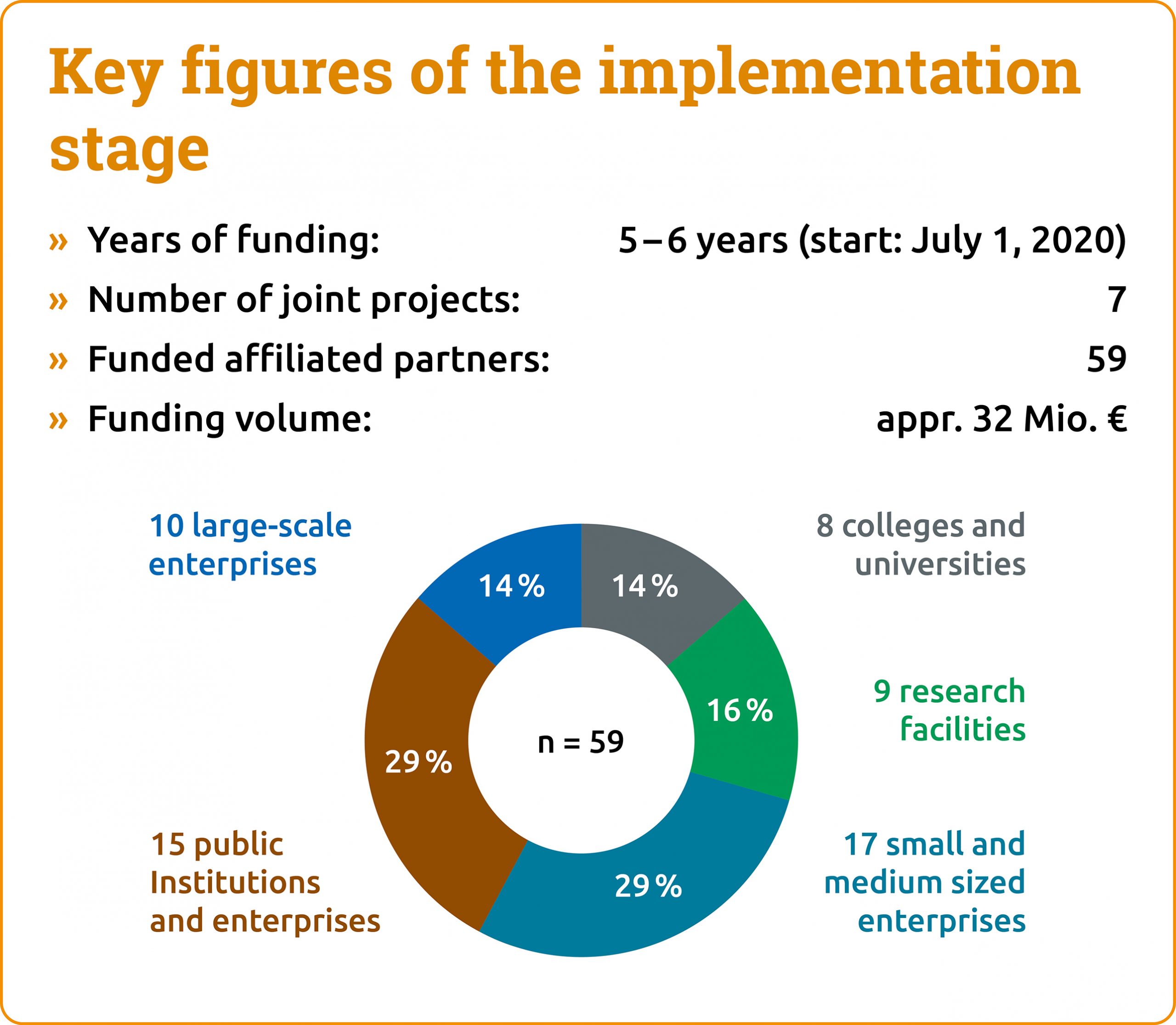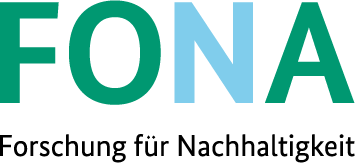
Phosphorus (P) is an essential and non-substitutable component in all living organisms and is mainly used as a fertilizer for high-yield agriculture. The finite phosphate ore reserves are limited to a few, partly politically unstable regions in the world and are increasingly contaminated (cadmium, uranium). Germany, like almost all countries of the European Union (EU), does not have its own rock phosphate deposits and is therefore completely dependent on imports. This leads to major risks in terms of security of supply and vulnerability to price fluctuations. Phosphorus has therefore already been put on the list of critical raw materials by the EU in 2014, which should provide an incentive for recycling activities. The recovery of phosphorus from P-rich waste streams such as wastewater and sewage sludge play an important role in securing future supplies. The Federal Government has therefore anchored the recovery of phosphorus in the German Resource Efficiency Program (ProgRess II) as an important component for establishing a resource-efficient recycling economy and created the legal framework with the amendment to the Sewage Sludge Ordinance, which came into force in October 2017. This development underlines the great demand for innovative, economical and sustainable solutions for P-recycling.

The aim of the measure „Regional Phosphorus Recycling“ (RePhoR) supported by the Federal Ministry of Education and Research (BMBF) is to contribute to the implementation of the new Sewage Sludge Ordinance by providing innovative economic solutions for regional P-recycling. The resulting increased use of secondary phosphorus from the circular economy should significantly reduce the loss of phosphorus and Germany’s dependence on phosphorus imports. To this end, various technologies for P-recovery from wastewater, sewage sludge or sewage sludge incineration ash are being implemented on a large scale and thus scientifically sound findings and practical experience are being gathered under real conditions. Innovative regional recycling concepts will be developed for the locally produced sewage sludge. In addition, holistic concepts are developed and realized, which close the gap between P-recovery and P-recycling and thus return the recovered phosphorus via agriculture into the nutrient cycle or as raw material to the industry. They are to serve as a model for other regions with comparable conditions.
Within the BMBF Funding Measure RePhoR, innovative regional solutions for P-recycling and sewage sludge utilization are developed and implemented under consideration of the changed legal framework. The following aspects are essential:
Regional approach
Here, the local conditions and infrastructures of wastewater treatment and sewage sludge utilization as well as the shortest possible transport routes for sewage sludge, sewage sludge incineration ash and P-recyclates must be considered. Considerations of the entire value-added chain are to be aimed at, in order to return the recovered phosphorus via agriculture into the nutrient cycle or as raw material into the industry (if necessary, under establishment of new organization and business models). In doing so, care should be taken to ensure that all regionally relevant actors from industry, science, administration and society are involved from the very beginning (e.g. potential users of P-recyclates or regulatory authorities). Novel recycling concepts for the sewage sludge produced in the region are to be demonstrated.
Large-scale P-recovery
In recent years, numerous processes have been developed for the recovery of phosphorus from various material streams. However, large-scale implementation has so far only taken place for very few processes, mainly due to economic and legal uncertainties. This results in a high demand for the exemplary development and large-scale implementation of processes for P-recovery under real conditions for different plant sizes and types. The focus is on the P-rich material streams wastewater, sewage sludge or sewage sludge incineration ash. It is also possible to integrate existing P-recovery plants into the regional concepts. The experience gained from large-scale implementations is essential in order to be able to reasonably assess the product quality of the P-recyclates as well as the effects on wastewater treatment plant operation and sewage sludge disposal.
Quality of the P-recyclates
An important prerequisite for the acceptance of P-recyclates on the market is proof that they can be produced continuously, in sufficient quantities and in good quality. Depending on the intended use, different requirements have to be met. The properties and thus the sales opportunities of P-recyclates differ in some cases significantly depending on the product type, production process and starting product. When used as a fertilizer, for example, good plant availability combined with low pollutant levels is crucial. For this reason, quality investigations of the P-recyclates produced are an important part of the work program of the RePhoR projects. Legal aspects relevant for the application of P-recyclates are also considered and included from the beginning.
Profitability analyses and balance sheets
Within the regional concepts and implementations, solutions for P-recycling should be realized as economically and sustainably as possible. For this purpose, profitability analyses and life cycle assessments are carried out using established procedures. Essential aspects are: cost efficiency, recovery potential of the technology, integration into existing process engineering, quality of the P-recyclates, effect on sewage sludge utilization, impurities, operating resources, energy and material balances, emissions, residues as well as sales opportunities of the P-recyclates.
The funding measure RePhoR is supported by the networking project TransPhoR – Transfer Project for „Regional Phosphorus Recycling“. In addition to comprehensive tasks in the accompanying process (e.g. networking, organisation of events, press and public relations), three technical framework conditions are also being developed.
The research project is intended to provide targeted recommendations for action and to prepare feasible solutions for the problems of sustainable, regional phosphorus recycling. The individual processes and implementations of the joint projects will be examined for their feasibility under different aspects. Economic and ecological as well as social aspects play a role in the sustainability analysis. It should be made clear which applications are preferable for the respective framework conditions and which product quality or quantity can be expected. The market analysis regarding the marketing possibilities of the resulting recyclates is carried out by the individual research associations in cooperation with market participants and consumers.
The BMBF supports seven joint projects and one transfer and networking project within the framework of RePhoR. Each joint project consists of several subprojects and work packages in which the partners from science, industry and practice work together to implement the tasks and objectives of the funding measure.

The steering committee serves the cross-project networking between the research projects as well as the discussion of overarching issues. Among other things, cross-sectional topics are defined on which all interested collaborative projects work together during the funding period, e.g. in workshops. In addition, joint activities are planned for the exploitation and practical implementation of the project results and for public relations. The Steering Committee is composed of the coordinators of the collaborative projects, the networking project and experts, e.g. from industry, associations, authorities and departments. Representatives of the BMBF and the project management organization also take part in the meetings of the steering committee, which take place up to every six months.




